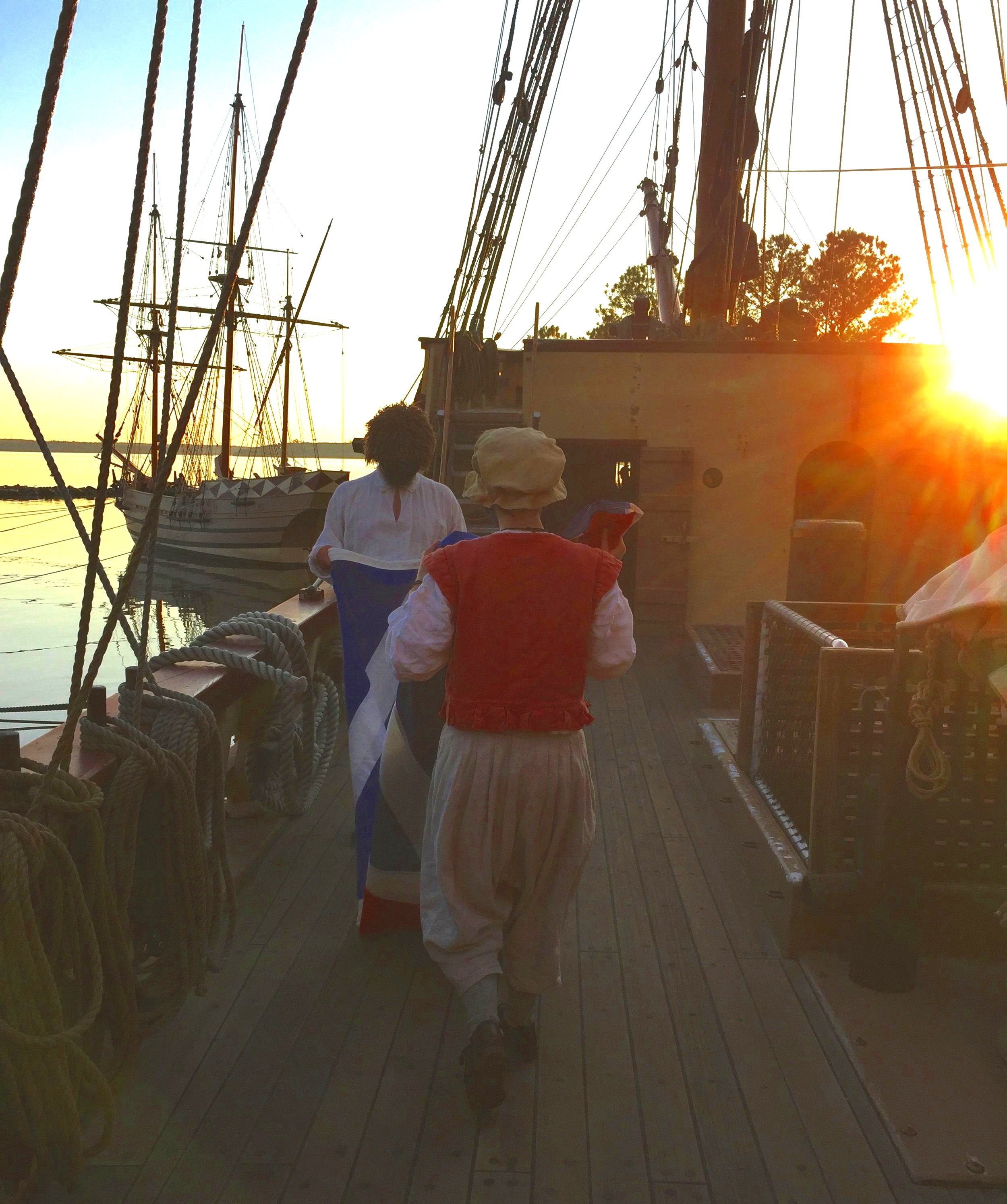Quotes from Smith’s Writings
Colonization
Nothing is so difficult as to establish a commonwealth so far from men and means. (Proceedings, p. 11; The Generall Historie, 3, p. 45)
These brawls [among the Jamestown leadership] are so disgustful as some will say they were better forgotten, yet all men of good judgement will conclude it were better their baseness should be manifest to the world than the business bear the scorn and shame of their excused disorders. (Proceedings, p. 12, The Generall Historie, 3, p. 46)
There was ten times more care to maintain their damnable and private trade than to provide for the Colony things that were necessary. (Proceedings, p. 5)
Speech as president: Countrymen, the long experience of our late miseries I hope is sufficient to persuade everyone to a present correction of himself, and think not that either my pains or the adventurers purses will ever maintain you in idleness and sloth… I have often commanded you, yet seeing now the authority resteth wholly in myself, you must obey this for a law, that he that will not work shall not eat (except by sickness he be disabled*). (Proceedings, p. 79, The Generall Historie, 3, p. 83)
* 2 Thessalonians 3:10 “For even when we were with you this we commanded you, that if any would not work, neither should he eat.”
By that acquaintance I have with [Virginia and New England] I may call them my children for they have been my wife, my hawks, my hounds, my cards, my dice, and in total my best content as indifferent to my heart as my left hand to my right, and notwithstanding all those miracles of disasters have crossed both them and me, yet were there not one Englishman remaining (as God be thanked there is some thousands) I would yet begin again with as small means as I did at the first. (New Englands Trials, 22, C4r)
If twenty years be required to make a child a man … who ever shall try in these remote places the erecting of a colony shall find at the end of seven years occasion enough to use all his discretion … till it be able to creep, to stand, and go. (A Description of New England, p. 42)
Let them peruse the histories of the Spaniards’ discoveries and plantations, where they may see how many mutinies, disorders, and dissentions have accompanied them and crossed their attempts. (The Generall Historie, 3, p. 50)
Those we write “laborers” were for the most part footmen … that never did know what a day’s work was … Gentlemen, tradesmen, servingmen, libertines, and such like ten times more fit to spoil a commonwealth than either begin one or but help to maintain one. (The Generall Historie, 3, p. 93-95)
It is not a work for everyone to manage such an affair as make a discovery and plant a colony. It requires all the best parts of art, judgment, courage, honesty, constancy, diligence, and industry to do but near well. Some are more proper for one thing than another, and therein best to be employed, and nothing breeds more confusion than misplacing and misemploying men in their undertakings. (The Generall Historie, 5, p. 208)
Of all the four parts of the world I have yet seen not inhabited, could I have but means to transport a colony, I would rather live here [in New England] than anywhere, and if it did not maintain itself, were we but once indifferently well fitted, let us starve. (The Generall Historie, 5, p. 209)
Colonial enterprise should Encourage and employ a great part of our idlers and others that want employment fitting the qualities at home where they shame to do that they would do abroad; that could they but once taste the sweet fruits of their own labors, doubtless many thousands would be advised by good discipline to take more pleasure in honest industry than in their humors of dissolute idleness. (The Generall Historie, 5, p. 213)
I am not so simple to think that ever any other motive than wealth will ever erect there a commonwealth or draw company from their ease and humors at home to stay in New England to effect my purposes. (The Generall Historie, 5, p. 219)
My purpose is not to persuade children from their parents, men from their wives, nor servants from their masters. (The Generall Historie, 5, p. 220; A Description of New England, p. 40)
For Christ had but twelve apostles and one was a traitor; and if there be no dissemblers among [the colonists], it is more than a wonder. (Advertisements, p. 3)
One hundred good laborers better than a thousand such gallants as were sent me [in Virginia]. (Advertisements, p. 3)
But I fear the seed of envy and the rust of covetousness doth grow too fast, for some would have all men advance Virginia to the ruin of New England, and others the loss of Virginia to sustain New England, which God of his mercy forbid. (Advertisements, p. 8.) The idea was that the two would serve to ensure each other’s survival, but in the event there was very little exchange.
All photos: Connie Lapallo






